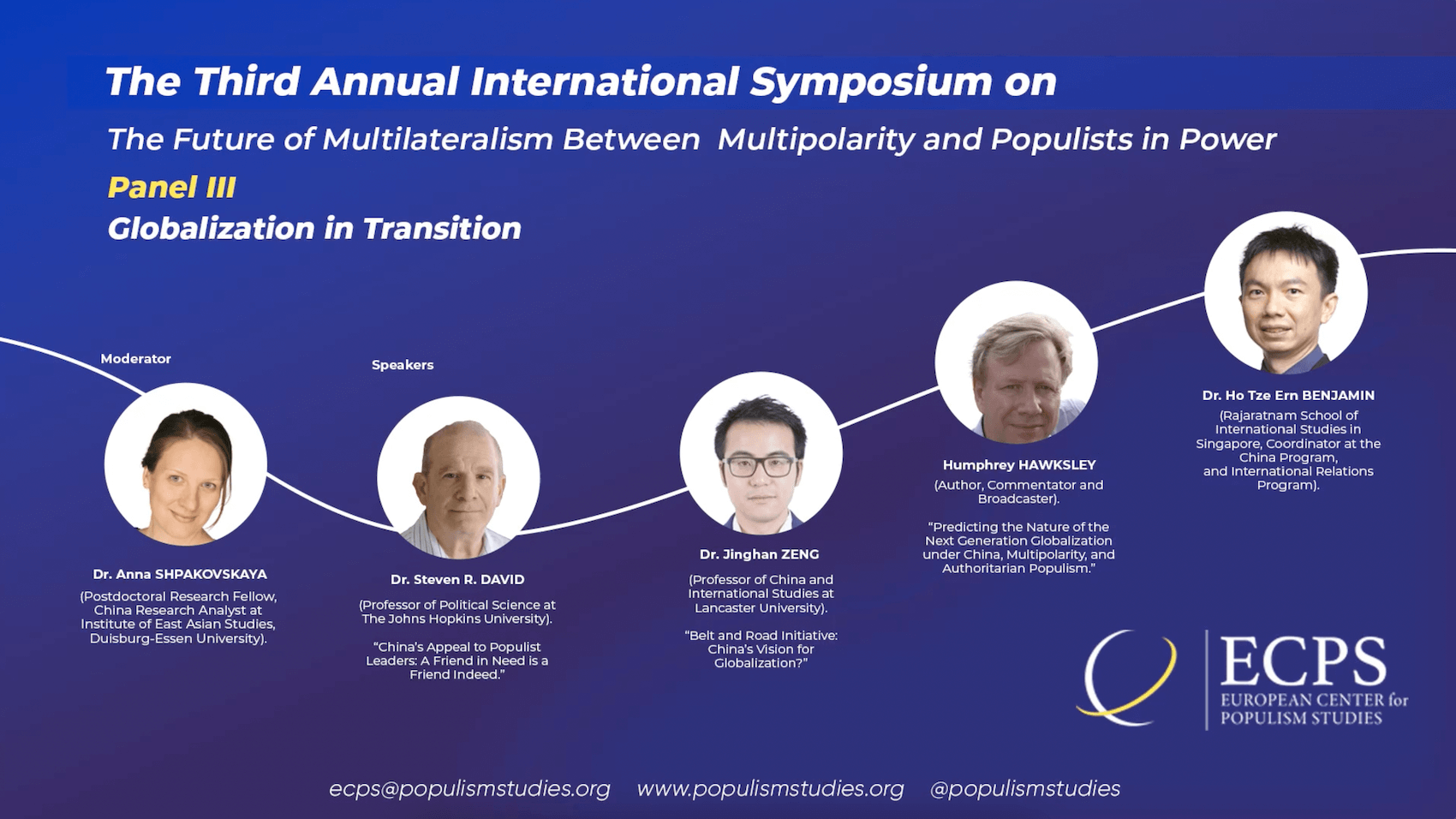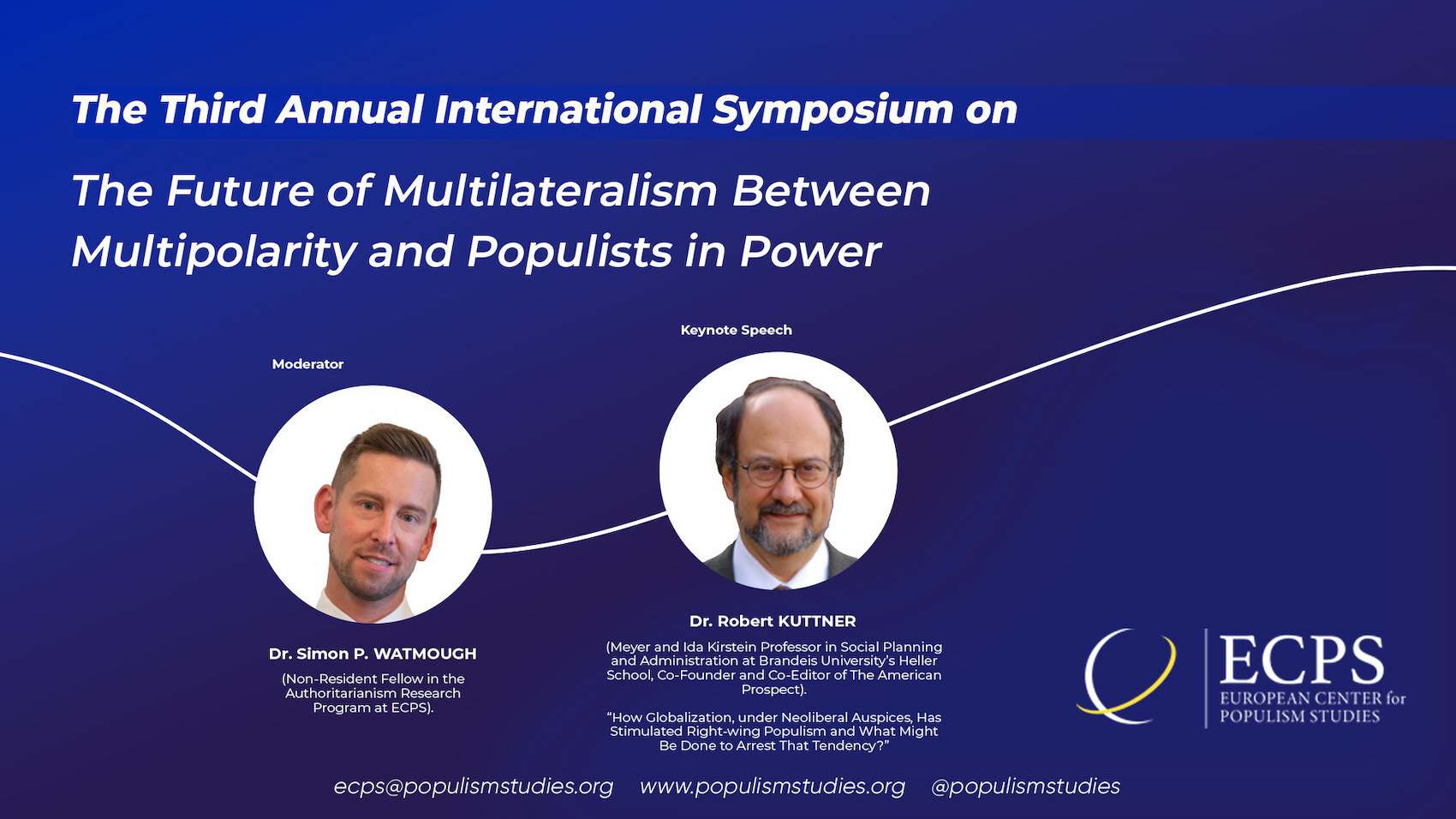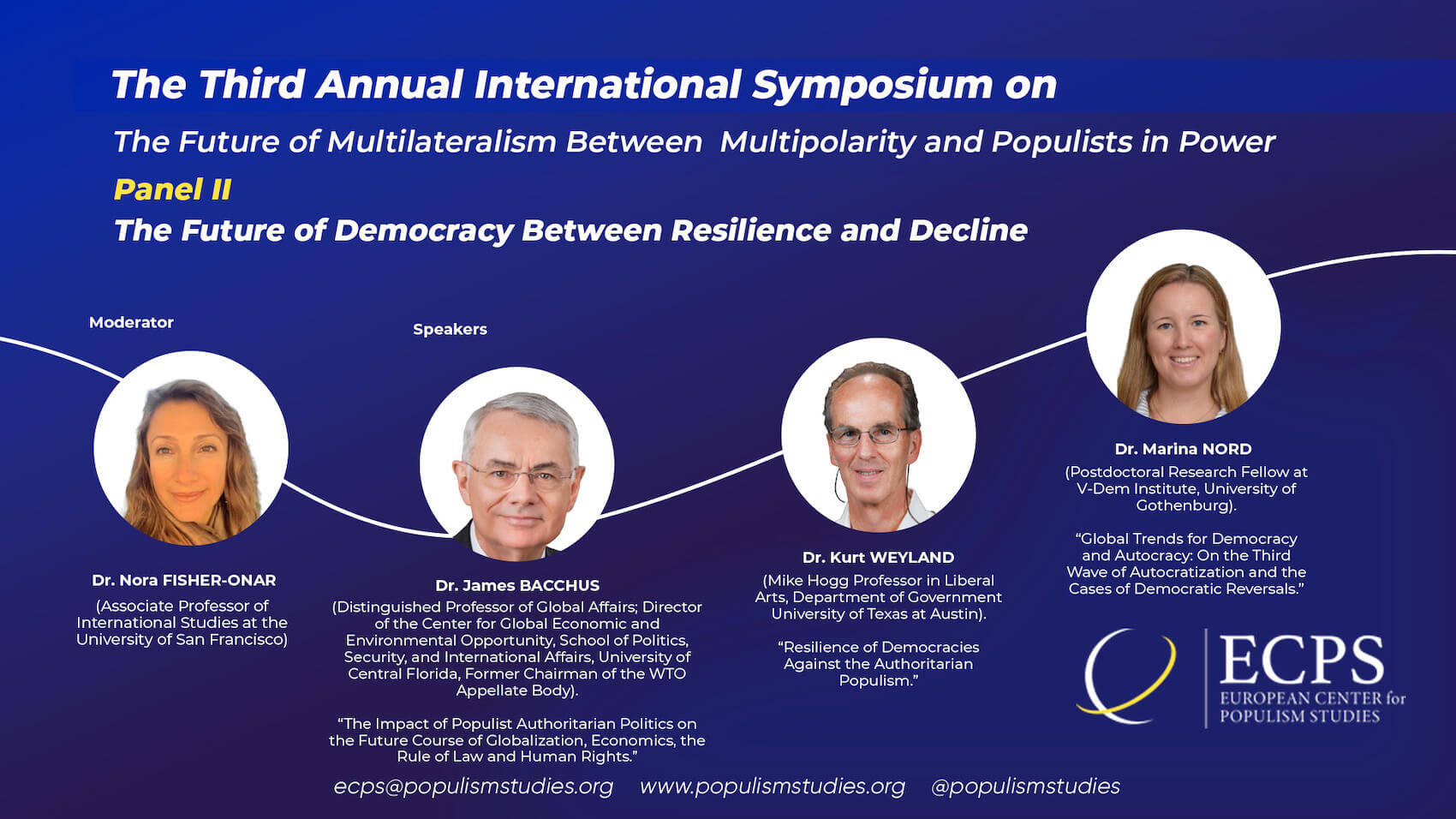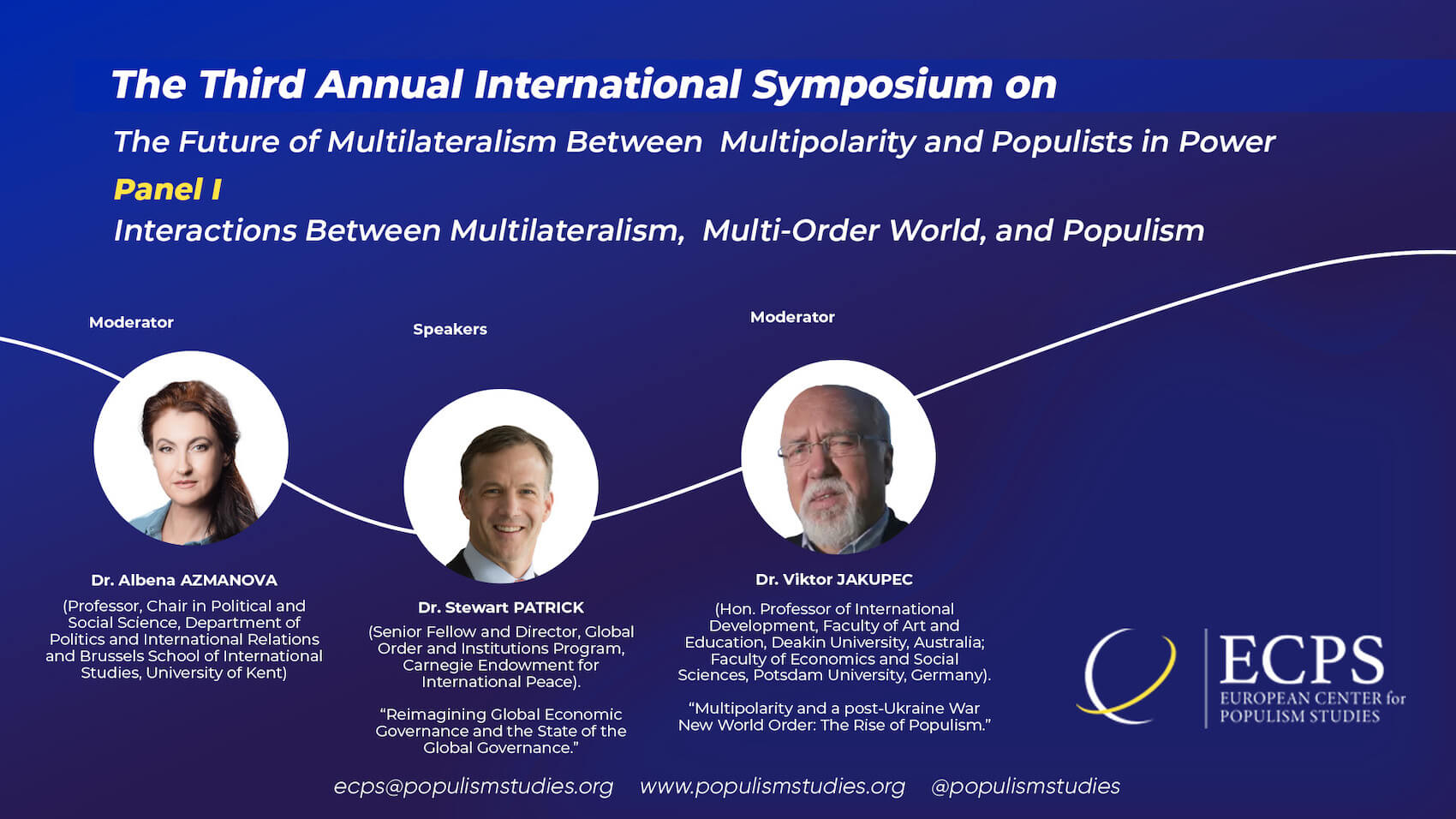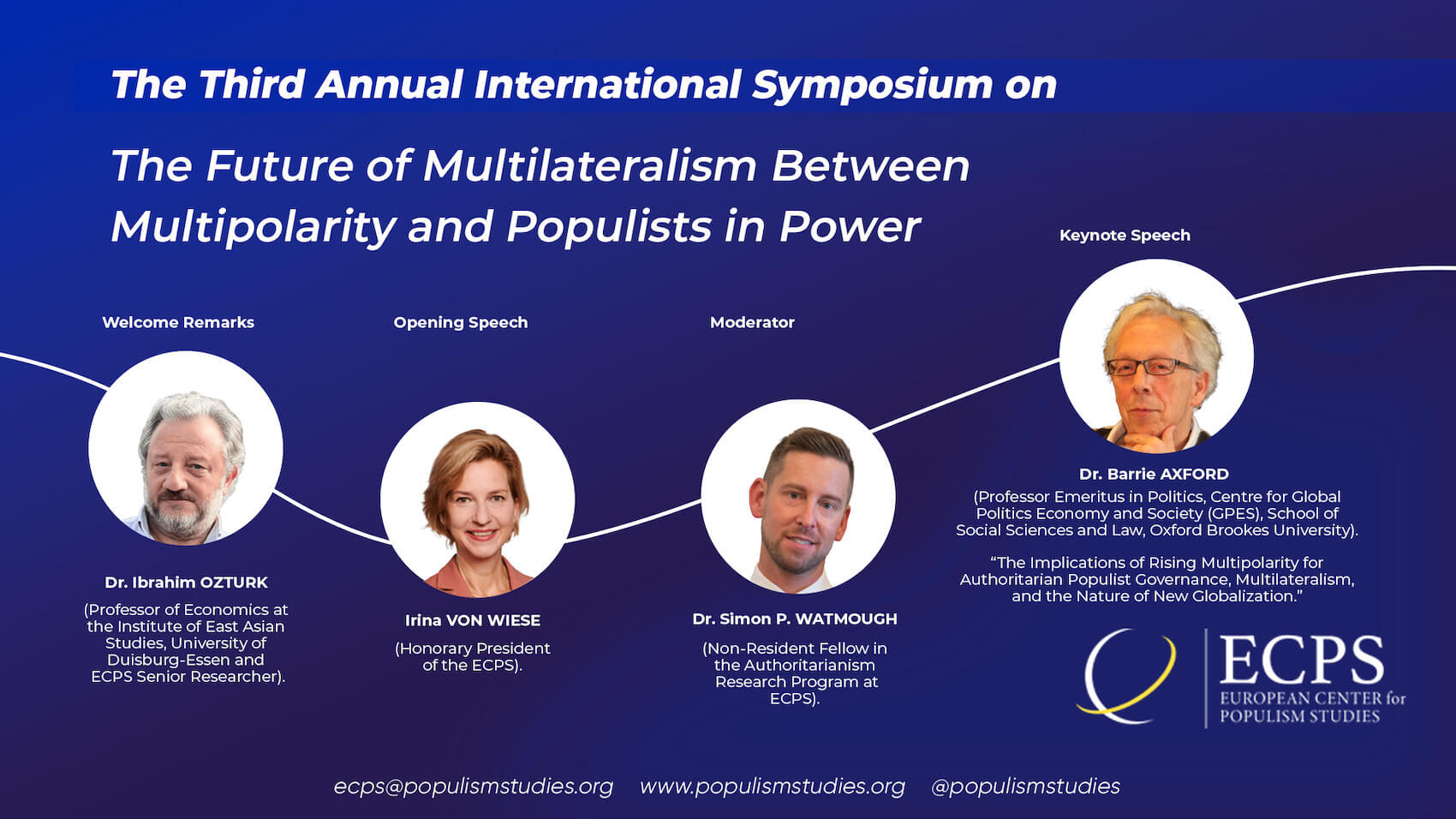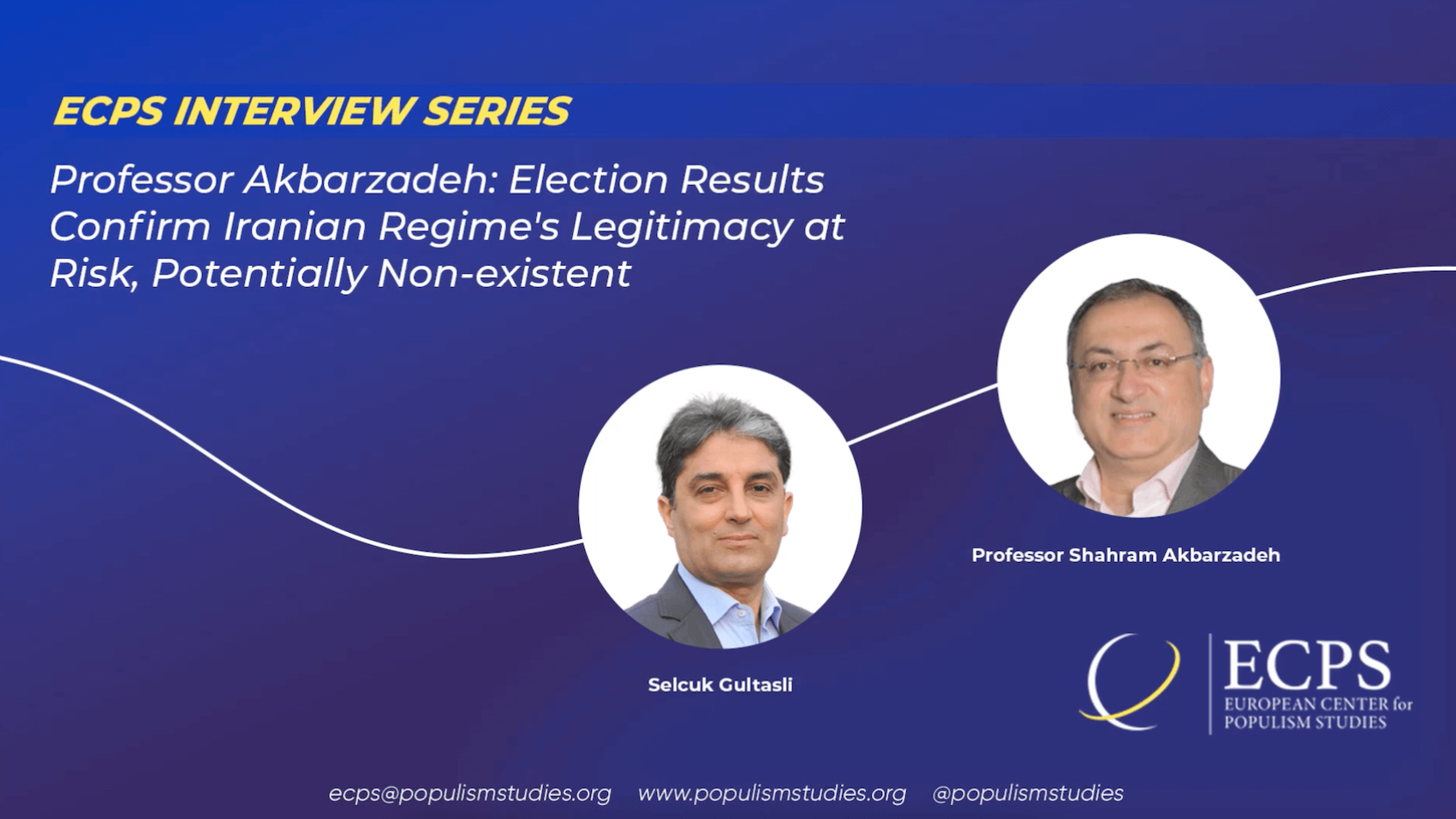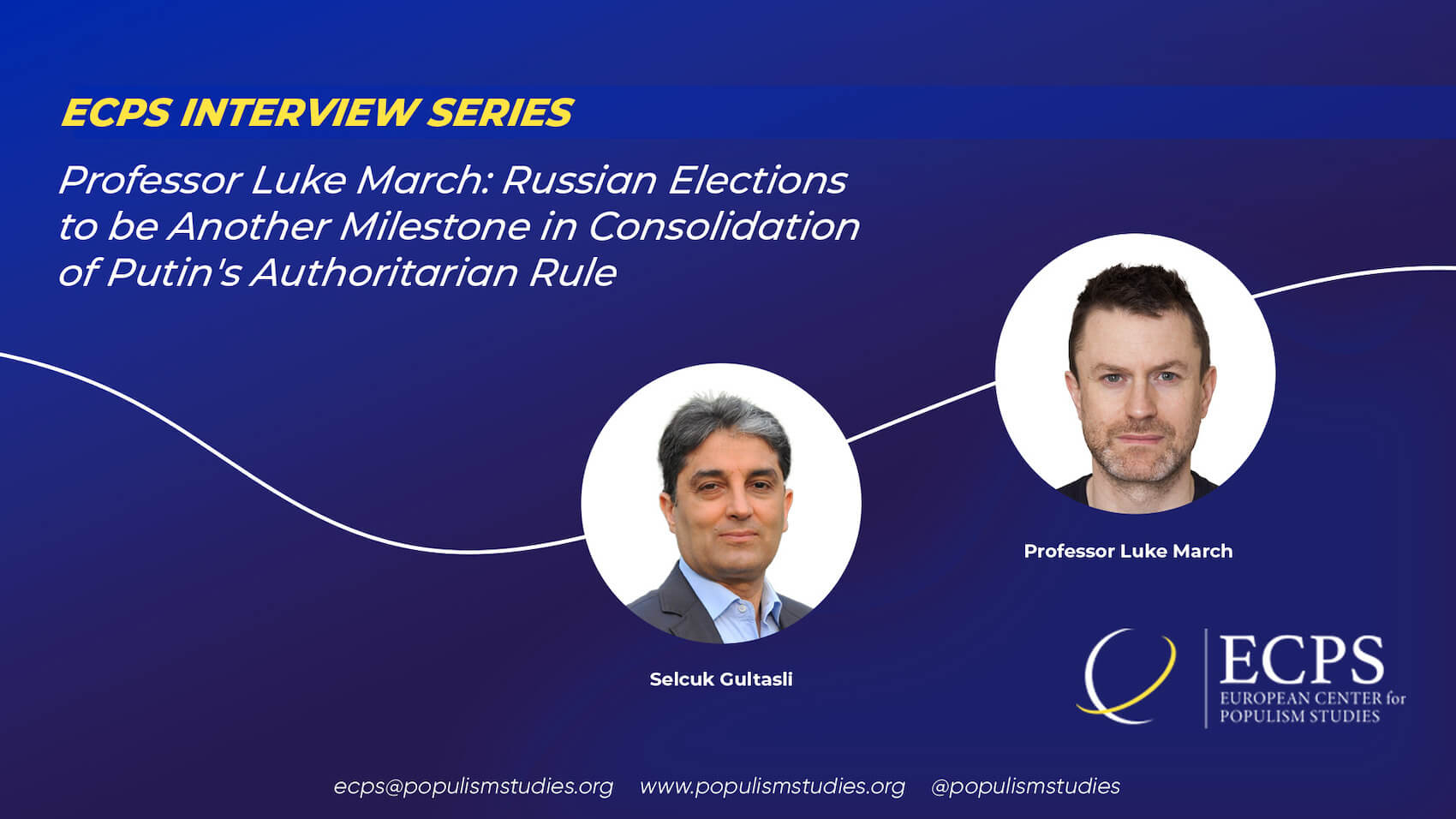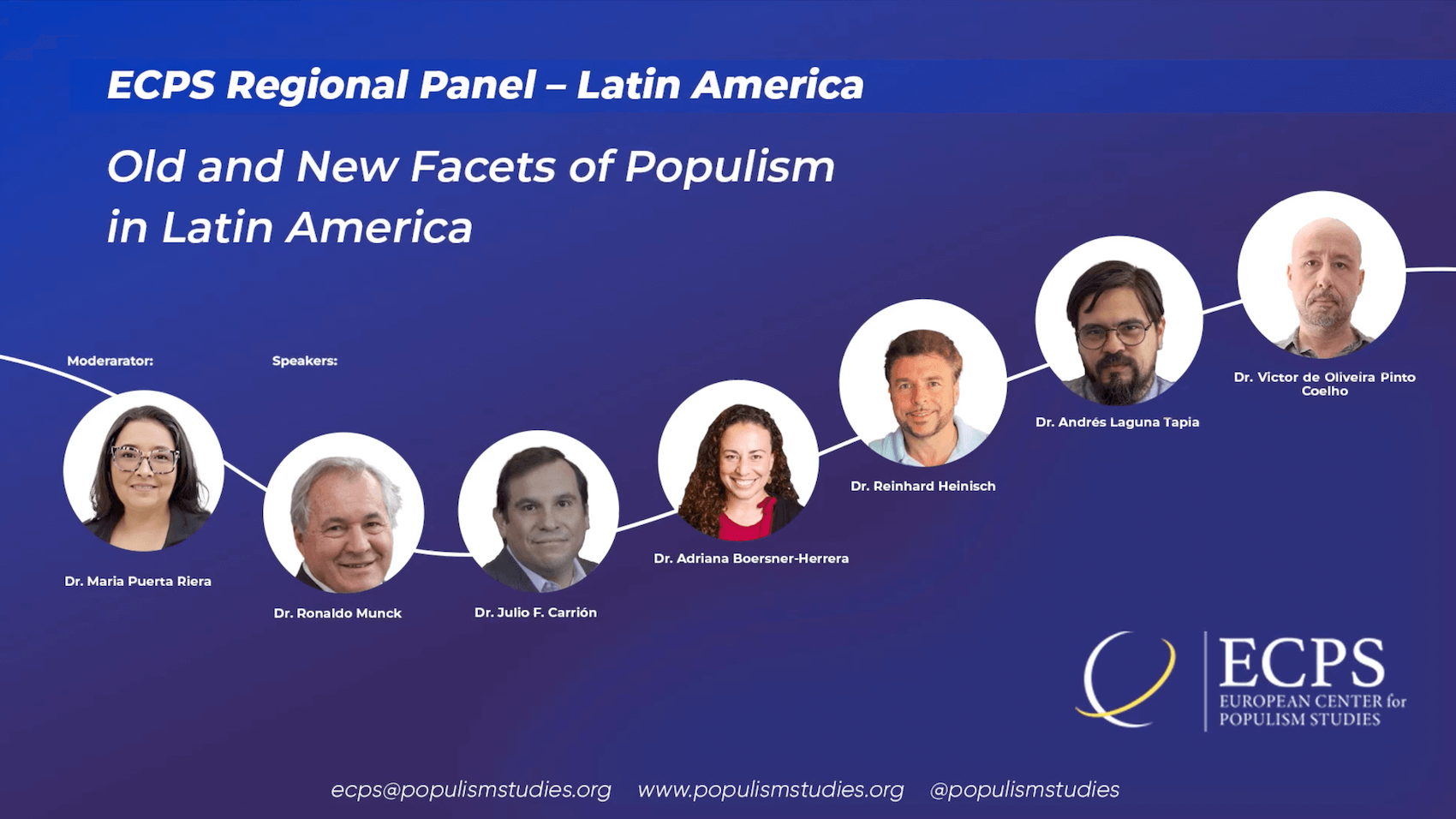Day I (March 19, 2024)
Opening Session
Welcome Remarks
(Professor of Economics at the Institute of East Asian Studies, University of Duisburg-Essen and ECPS Senior Researcher).
Opening Speech
Irina VON WIESE (Honorary President of the ECPS).
Moderator
Dr. Simon P. WATMOUGH (Non-Resident Fellow in the Authoritarianism Research Program at ECPS).
Keynote Speech
“The Implications of Rising Multipolarity for Authoritarian Populist Governance, Multilateralism, and the Nature of New Globalization,” by Dr. Barrie AXFORD (Professor Emeritus in Politics, Centre for Global Politics Economy and Society (GPES), School of Social Sciences and Law, Oxford Brookes University).
Panel -I-
Interactions Between Multilateralism, Multi-Order World, and Populism
Moderator
Dr. Albena AZMANOVA (Professor, Chair in Political and Social Science, Department of Politics and International Relations and Brussels School of International Studies, University of Kent).
Speakers
“Reimagining Global Economic Governance and the State of the Global Governance,” by Dr. Stewart PATRICK (Senior Fellow and Director, Global Order and Institutions Program, Carnegie Endowment for International Peace).
“Multipolarity and a post-Ukraine War New World Order: The Rise of Populism,” by Dr. Viktor JAKUPEC (Hon. Professor of International Development, Faculty of Art and Education, Deakin University, Australia; Faculty of Economics and Social Sciences, Potsdam University, Germany).
Panel -II-
The Future of Democracy Between Resilience & Decline
Moderator
Dr. Nora FISHER-ONAR (Associate Professor of International Studies at the University of San Francisco).
Speakers
“The Impact of Populist Authoritarian Politics on the Future Course of Globalization, Economics, the Rule of Law and Human Rights,” by Dr. James BACCHUS (Distinguished Professor of Global Affairs; Director of the Center for Global Economic and Environmental Opportunity, School of Politics, Security, and International Affairs, University of Central Florida, Former Chairman of the WTO Appellate Body).
“Resilience of Democracies Against the Authoritarian Populism,” by Dr. Kurt WEYLAND (Mike Hogg Professor in Liberal Arts, Department of Government University of Texas at Austin).
“Global Trends for Democracy and Autocracy: On the Third Wave of Autocratization and the Cases of Democratic Reversals,” by Dr. Marina NORD (Postdoctoral Research Fellow at V-Dem Institute, University of Gothenburg).
Day II (March 20, 2024)
Keynote Speech
“How Globalization, under Neoliberal Auspices, Has Stimulated Right-wing Populism and What Might Be Done to Arrest That Tendency?” by Dr. Robert KUTTNER (Meyer and Ida Kirstein Professor in Social Planning and Administration at Brandeis University’s Heller School, Co-Founder and Co-Editor of The American Prospect).
Panel -III-
Globalization in Transition
Moderator
(Postdoctoral Research Fellow, China Research Analyst at Institute of East Asian Studies, Duisburg-Essen University).
Speakers
“China’s Appeal to Populist Leaders: A Friend in Need is a Friend Indeed,” by Dr. Steven R. DAVID (Professor of Political Science at The Johns Hopkins University).
“Belt and Road Initiative: China’s Vision for Globalization?” by Dr. Jinghan ZENG (Professor of China and International Studies at Lancaster University).
“Predicting the Nature of the Next Generation Globalization under China, Multipolarity, and Authoritarian Populism” by Humphrey HAWKSLEY (Author, Commentator and Broadcaster).
Special Commentator Dr. Ho Tze Ern BENJAMIN (Rajaratnam School of International Studies in Singapore, Coordinator at the China Program, and International Relations Program).
Closing Session
Economic Implications of Rising Populism and Multipolarity
Moderator
(Associate Professor in International Relations at School of Society and Culture, University of Plymouth).
Speaker
“Demise of Multilateralism and Politicization of International Trade Relations and the Multilateral Trading System,” by Dr. Giorgio SACERDOTI (Professor of Law, Bocconi University; Former Chairman of the WTO Appellate Body).
Closing Remarks
(Adjunct Professor of Political Science at the University of Athens and ECPS Advisory Board Member).


